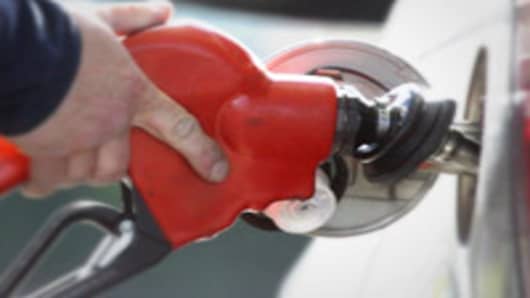2011 will go out with oil near $100 per barrel.
2011 will also go out as another year in which Washington has failed to give us an energy policy that can help lower the price of oil through a combination of increased production and reduced demand.
Whether it be uprisings in the Middle East, saber rattling from Iran, protests in Russia or the death of a North Korean dictator, it was a year we learned (again) that global events beyond our control can shake the oil markets, send prices higher and steal money from our wallet.
Debating the right energy policy — whether it be T. Boone Pickens’ plan to swap diesel truck engines for natural gas, raising the gas tax to cut consumption or doing more to promote alternative energy use — is something Congress and the president must engage in sooner rather than later.
But let’s put that aside for now and look at the hard numbers.
According to economist Nigel Gault, every $10 increase in the price of a barrel of oil raises gas prices by about 25 cents. The average American home buys about 1,000 gallons of gasoline every year, so every quarter increase in gas takes about $250 per year from your pocket. Multiply that by more than 110 million households and Gault estimates that steals about 0.2 percent from U.S. GDP .
That may not seem like much, but 0.2 percent of our $15 trillion dollar economy is about $30 billion dollars per year. These are big numbers that grow if gas prices go higher. And remember, salaries have been stagnant.
Using Gault’s assumptions, if gas prices rise by $1 per gallon, it would steal about 0.8 percent from economic growth, or more than $100 billion per year.
Now consider all of the debate about tax cuts on the rich.
One group estimates that the economic cost to the country of those tax cuts on the top 5 percent of wage earners has been about $1 trillion, or $100 billion per year, since they were enacted in 2001.
Now consider that in 2001 gasoline averaged the then-shocking price of about $1.50 per gallon. We’re averaging more than twice that now. Using Gault’s numbers, that $2-plus per gallon jump in the price of gas since 2001 has likely cut American purchasing power by more than $1 trillion over the past decade.
In other words, higher oil and gas prices cost the economy more than the much-debated Bush/Obama tax cuts on the wealthy. Worse, oil price hikes are the most regressive "taxes" of all, eating a greater percentage of income from those who can least afford it.
Every U.S. president since Richard Nixon has said that cutting our dependence on foreign oil will be a top priority. Yet all eight presidents have failed while our dependence on OPEC has actually soared. In 1975 we imported around 4 million barrels of oil per day. We now import more than 9 million barrels of oil every day.
We are held economic hostage by oil prices. We are also held political hostage by lack of real action from Washington on the energy issue.
Let’s hope 2012 brings renewed discussion and action on the one issue that could pop a few hundred billion more bucks per year into Americans’ collective wallets.



